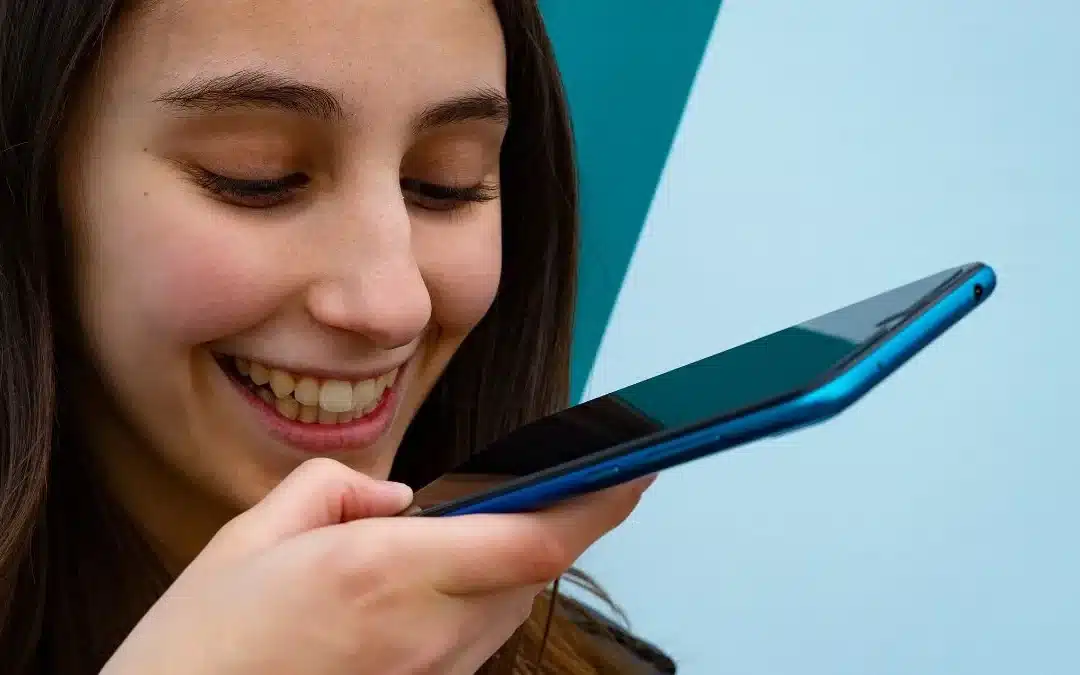Using a WhatsApp chatbot as part of an omnichannel communication and one-to-one marketing strategy can offer customers an engaging experience across multiple channels.
Integrating a chatbot on WhatsApp allows companies to:
- Provide 24/7 customer support
- Automate sales and marketing processes
- Personalize the user experience
- Collect data to improve products and services
Updated on: June 3rd 2025
Estimated reading time: 10 minutes
Table of contents
What is a Whatsapp Chatbot?
A WhatsApp chatbot is an automated software designed to communicate with users within the most used messaging app in the world. It works as an always-available virtual assistant, capable of managing conversations autonomously, quickly and efficiently.
Thanks to artificial intelligence and, in particular, to natural language processing (Natural Language Processing – NLP), the chatbot is able to understand the meaning of questions, even if formulated differently or with typing errors, and to provide relevant and contextual answers in real time.
It can be programmed to perform specific actions such as:
- answering frequently asked questions (FAQ),
- collecting information from users,
- guiding the user through purchase or booking processes,
- sending reminders or personalized notifications,
- transferring the conversation to a human operator if necessary.
In addition to managing one-to-one interactions in a scalable way, the WhatsApp chatbot can also integrate with CRM, payment systems, e-commerce and business platforms, offering a fluid, continuous and increasingly personalized conversational experience.
In practice, it represents a strategic tool for companies that want to improve customer service, increase conversions and optimize operating costs — all directly within the app that customers already use every day.
Why using a Whatsapp chatbot for one to one marketing?

Using a WhatsApp chatbot for one-to-one marketing means leveraging a direct, personal and highly open channel to communicate with customers in a truly relevant way. Unlike emails or banner ads, which are often ignored or filtered, messages sent on WhatsApp have open rates of over 95% and are read within minutes of receiving them.
This channel allows companies to send highly personalized communications — such as promotions, order updates, exclusive offers or product suggestions — based on the behavior, preferences or purchase history of the individual user. The result? A more relevant experience for the customer, a higher conversion rate and a stronger relationship between brand and consumer.
Furthermore, with the help of chatbots, it is possible to scale these interactions without losing the personal touch: each conversation can be adapted in real time, making WhatsApp a perfect tool for a tailored conversational marketing strategy.
Benefits of using a whatsapp chatbot
24/7 Customer Service
One of the main advantages of using a WhatsApp chatbot is the ability to offer continuous support, without time limits. Chatbots can manage thousands of conversations at the same time, responding instantly to the most common requests — such as order status, product availability, opening hours, technical issues and much more.
This constant operation allows you to eliminate waiting times, improve the customer experience and lighten the workload of the human support team. Furthermore, in the case of complex requests, the chatbot can transfer the conversation to a human operator, maintaining the dialogue history to ensure continuity.
Using a WhatsApp chatbot to increase Sales
Chatbots on WhatsApp are not just support tools, but real allies for sales. They can accompany customers throughout the entire purchase funnel: from discovering the product to completing the order, with personalized suggestions and instant responses.
Companies that have integrated chatbots on WhatsApp have recorded conversion rates of up to 45-60%, compared to the classic 2-5% obtained through email marketing or SMS. The combination of immediacy, personalization and direct interaction makes WhatsApp one of the most effective channels for increasing online sales, especially in the retail and e-commerce sector.
Personalization of the User Experience
One of the most powerful aspects of conversational marketing is the ability to create personalized and dynamic experiences. Intelligent chatbots can analyze user behavior (purchase history, preferences, recent searches) and use this information to adapt responses and proposals in real time.
For example, if a user has searched for sneakers on the site and abandoned the cart, the chatbot can write to them on WhatsApp to remind them of the purchase, perhaps offering a discount or a limited promotion. This form of personalization increases customer involvement (engagement) and satisfaction, also improving brand perception.
Reduction of Operating Costs
Automating interactions via chatbots allows companies to optimize human resources and significantly reduce customer service costs. According to various research, companies that adopt chatbot-based solutions can save up to 30% compared to traditional telephone or email support models.
This is because a single chatbot can replace dozens of operators in managing standard requests, leaving only the most complex or delicate cases to the human team. Furthermore, automation speeds up internal processes, reduces errors and makes the entire customer care system more efficient and sustainable.
whatsapp chatbot use cases

There are currently three versions of the Whatsapp application available:
the “Consumer” version for private use;
the “Business App” version designed for SMEs and freelancers;
the “Business Platform” designed for the Enterprise market, compliant with the GDPR and integrable via API.
The most common use cases of Whatsapp chatbots are in customer care, in outbound marketing and in e-commerce, so much so that we now speak of “Whatsapp Commerce”.
Let’s see some examples.
Whatsapp Customer Care
One of the most popular uses of chatbots on WhatsApp is customer support. Bots can automatically handle a wide range of requests: from the most common FAQs (such as “what is the status of my order?” or “what is the return policy?”), to resolving recurring issues, to directing the user to a human operator in case of more complex questions.
This hybrid system allows you to guarantee very fast response times, reduce user frustration and offer a continuous and fluid experience, without having to change channels. The result? Happier customers and more focused and efficient support teams.
Appointment management and reminders with whatsapp
With a WhatsApp chatbot, you can completely automate appointment management, making the process simple and accessible directly from your smartphone. Users can book, change or cancel appointments independently, without having to call or wait for confirmations via email.
In addition, the bot can send automatic reminders to reduce absences (no-shows), remember important deadlines or report the need for renewals. This feature is particularly useful in sectors such as healthcare, aesthetics, training or consultancy.
Whatsapp commerce
WhatsApp Commerce represents one of the most promising frontiers of conversational e-commerce. Thanks to chatbots, companies can offer a direct and personalized purchasing experience within the chat: from product presentation to order management, from payment to after-sales assistance.
The bot can answer questions about features, sizes, availability or delivery methods, as well as suggesting related products or applying discounts. It’s like having a digital salesperson always present, able to guide each customer through the purchasing process, increasing the conversion rate and loyalty.
Whatsapp outbound marketing
WhatsApp chatbots are extremely effective tools for outbound marketing, that is, all those actions that start from the company towards the customer. Through proactive and personalized messages, the bot can send promotional offers, launch new products, notify special events or collect feedback through interactive surveys.
Thanks to the high opening rate of notifications on WhatsApp (over 95%), this type of communication guarantees much greater visibility than emails and SMS, with significantly superior performance in terms of response and interaction.
Live engagement & gamification
To build a solid relationship with the customer, it is not enough to inform: you need to involve. WhatsApp chatbots allow you to activate real engagement campaigns in real time, using gamification dynamics such as quizzes, games, prizes, timed challenges or promotional countdowns.
These interactive contents transform communication into a fun and memorable experience, increasing the time spent with the brand, virality and the propensity to purchase. An effective approach especially for communities, lifestyle brands and companies with young or loyal targets.
Using a WhatsApp Chatbot with Generative AI
The evolution of generative AI represents a significant breakthrough for companies that want to use a WhatsApp chatbot as a strategic tool to improve engagement, increase conversions and offer high-quality customer service.
Generative AI enhances chatbots on WhatsApp, allowing them to:
- Maintain more fluid and natural conversations: Generative AI allows for more coherent and less robotic dialogues, improving the user experience.
- Understand and respond to voice messages and images: Chatbots can now interpret voice notes and visual content, expanding the ways they can interact with users.
- Generate personalized content: Thanks to the ability to learn from previous interactions, chatbots offer responses and suggestions tailored to each user.
These innovations have made chatbots even more effective tools for customer care, marketing and sales, offering 24/7 customer service and more meaningful interactions with users.
For example, Meta AI – the artificial intelligence system developed by Meta and powered by models such as Llama 3 – has been integrated directly into WhatsApp (and other apps of the group such as Messenger and Instagram), allowing users to interact with an AI assistant without leaving the chat. This means that the user can:
- Ask complex questions and receive detailed and relevant answers;
- Request personalized suggestions, such as gift ideas, travel itineraries or recipes;
- Use AI to generate content such as texts, emails, social posts or reminders;
- Receive explanations and contextual assistance while interacting with brands or services.
For companies, this translates into unprecedented conversational power: the chatbot is no longer a simple automation tool, but a real virtual assistant capable of adapting to the needs of each customer, improving the quality of the interaction and increasing conversion rates.
How to integrate a whatsapp chatbot
Let’s see the basic steps to integrate a chatbot into Whatsapp.
- Choose a reliable platform
Select a chatbot provider that supports integration with the WhatsApp Business API and offers advanced AI capabilities, such as Meta AI or other generative AI technologies.
- Set up Whatsapp Business account
Make sure you have a verified WhatsApp Business account, which is required to connect the chatbot and access the official APIs.
- Define conversation goals
Plan what types of interactions you want to automate (customer service, reservations, sales) and create a conversational script that reflects your brand tone and values.
- Connect the chatbot to Whatsapp
Through your chosen platform, connect the chatbot to your WhatsApp Business number using the official APIs. This allows the chatbot to automatically manage conversations.
- Test and optimize
Before going live, test that the chatbot responds correctly to various scenarios and collect feedback from users to continuously improve the experience.
- Monitor performance
Use analytics dashboards to monitor usage metrics, response times, and user satisfaction, so you can adapt your chatbot based on the data you collect.
Conclusions
Using a WhatsApp chatbot is now an essential strategy for companies that want to offer efficient and personalized customer service and improve relationships with their customers thanks to artificial intelligence.
Yes, modern chatbots support omnichannel integration, enabling consistent conversations across WhatsApp, email, website, and other channels.
Enterprise versions of chatbots can be configured to comply with GDPR regulations, ensuring the protection of user data.
Costs vary based on the complexity of the chatbot and the desired functionality, but automation can significantly reduce operating expenses.
Updated on: June 3rd 2025

